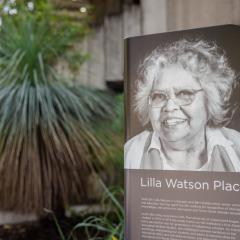
A University of Queensland research paper advocating better communication between families and palliative caregivers has received an international award.
The International Journal of Older People’s Nursing(IJOPN) selected the work of Honorary Associate Professor Deborah Parker, Dr Anthony Tuckett and Ms Karen Clifton for its Outstanding Scholarly Contribution to Gerontological Nursing Practice.
Professor Parker holds an honorary appointment at UQ, while Dr Tuckett and Ms Clifton are members of the School of Nursing, Midwifery and Social Work.
“The exciting aspect for us is that the IJOPN editor, Professor Sarah Kagan, is from the top-ranked nursing university on the planet, University of Pennsylvania,” Professor Parker said.
“That’s a ringing endorsement for the quality of research being undertaken here at The University of Queensland, and is encouraging for students and staff alike.”
The winning study reported the effectiveness of Palliative Care Case Conferences, interventions designed to discuss the physical, medical and spiritual needs of long-term care patients.
Research found that 93.1 per cent of family members that participated in the conferences were satisfied their concerns were addressed.
Matters such as pain management, psychological needs, end-of-life planning, and nutrition and hydration needs were among the most prominent issues discussed.
The gravity of the meetings was such that family members reported an average level of concern prior to a conference of 7.5, on a scale where 10 represented ‘as worried as I could possibly be’.
Underpinning the importance of family contribution, only six of the 32 care recipients were able to represent themselves at the Palliative Care Case Conferences.
“The family’s desire to talk frankly and openly about end-of-life issues may not always be recognised by health professionals in long-term care,” Professor Parker said.
“If we can educate staff on the information requirements of families and the communication techniques to sensitively address these issues, we may address this incongruence.”
Of the 32 care recipients in the report, published December 2015, 75 per cent were female, 43.3 per cent had a diagnosis of dementia and the average age was 85 years.
Media: Prof Deborah Parker, deborah.parker@uq.edu.au , +61 437 329 385; Robert Burgin, UQ Communications, r.burgin@uq.edu.au , +61 7 3346 3035, +61 448 410 364.



